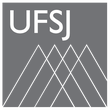Banca de DEFESA: LUAN RAFAEL DE OLIVEIRA CASTRO
Uma banca de DEFESA de MESTRADO foi cadastrada pelo programa.STUDENT : LUAN RAFAEL DE OLIVEIRA CASTRO
DATE: 21/12/2023
TIME: 14:00
LOCAL: Ambiente Virtual
TITLE:
THE RELATIONSHIP BETWEEN EVIL AND FREEDOM IN KANT`S PHILOSOPHY
KEY WORDS:
Evil. Freedom. Radical evil. Religion. Moral
PAGES: 105
BIG AREA: Ciências Humanas
AREA: Filosofia
SUBÁREA: Ética
SUMMARY:
The Kantian theory about evil is one of the fields of ethics that most generates conflicts and ambiguous interpretations. In particular, the theory of radical evil is a constant point of conflict for critics and researchers of Kantian philosophy, and many authors consider that it puts the entire edifice of Kant's critical-transcendental philosophy in crisis and, in order to understand this problem, it is necessary to carry out a multifaceted study that encompasses several of his works. If it is assumed that in the Groundwork of the Metaphysics of Morals and in the Critique of Practical Reason he investigates what constitutes a moral action, in Religion at the Limits of Simple Reason he investigates the configuration of evil. This last text is primarily responsible for the so-called conflicts of Kantian coherence, since, in addition to being an analysis
philosophy of religion, it is in it that Kant postulates the theory of radical evil. The doctrine of radical evil resides in the human being's claim to be outside the duty of the moral law, to
corrupt and allow an arbitrary motive to be consciously established against the maxim of the moral law, which legislates for itself as a maxim of action, inverting the established universal maxim
in the Groundwork of the Metaphysics of Morals. That is, evil starts from the singular against the universality of the moral law and takes place when the moral agent establishes an evil maxim.
as a guideline for his actions. However, from the perspective of this project, the problem of evil is directly related to freedom, especially with the validity of free will (freie
Willkür), understanding that, according to his own will, only the free human being, as an agent endowed with a faculty of practical desire, can choose moral evil and, therefore,
Because of this, an inclination towards good and a propensity towards evil is proposed, where Kant seems to defend two untenable ideals. Preliminarily, an innate propensity for evil
does not seem compatible with any notion of freedom. It is from this split that the problem of this research arises. Therefore, the general objective of this project is to understand the complex relationships of the concepts of Freedom and Evil in Kant's critical-transcendental philosophy.
BANKING MEMBERS:
Presidente - 2325530 - BRUNO LEONARDO CUNHA
Interno - 1920469 - LUIZ PAULO ROUANET
Externa à Instituição - MARIA DE LOURDES ALVES BORGES - UFSC




